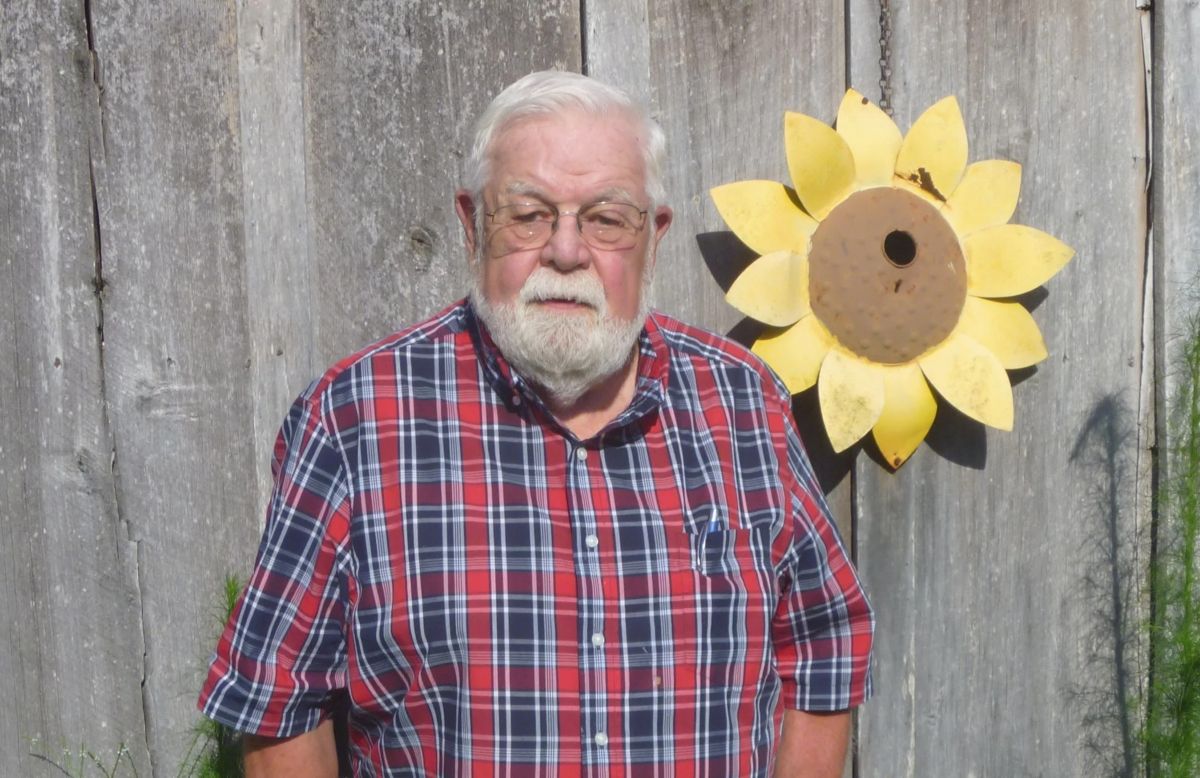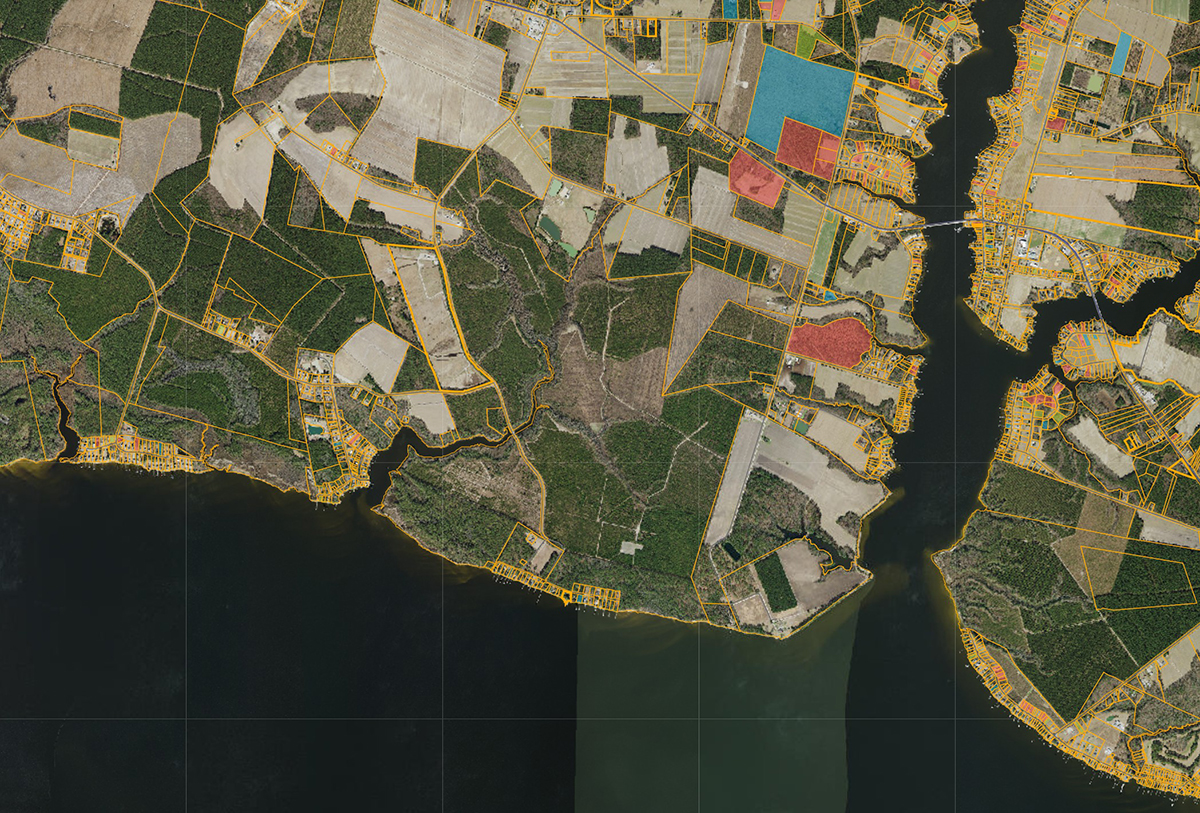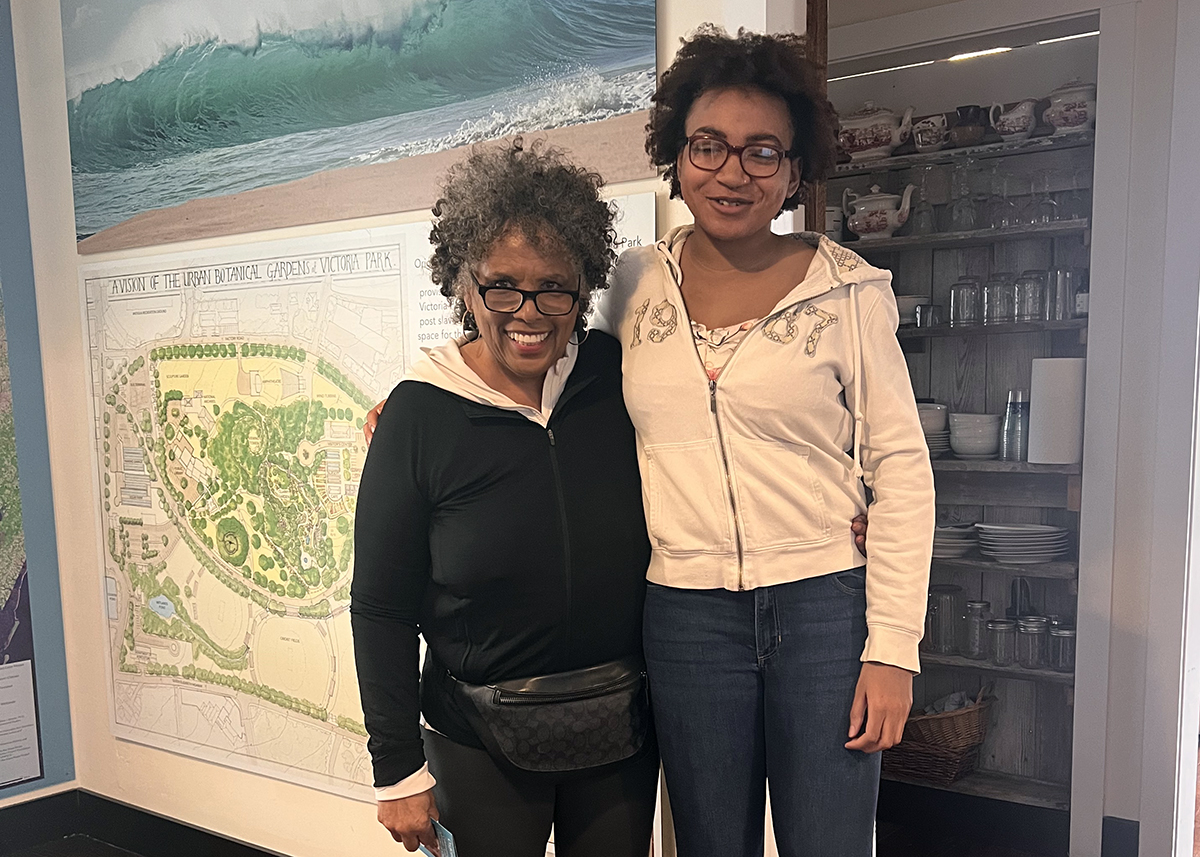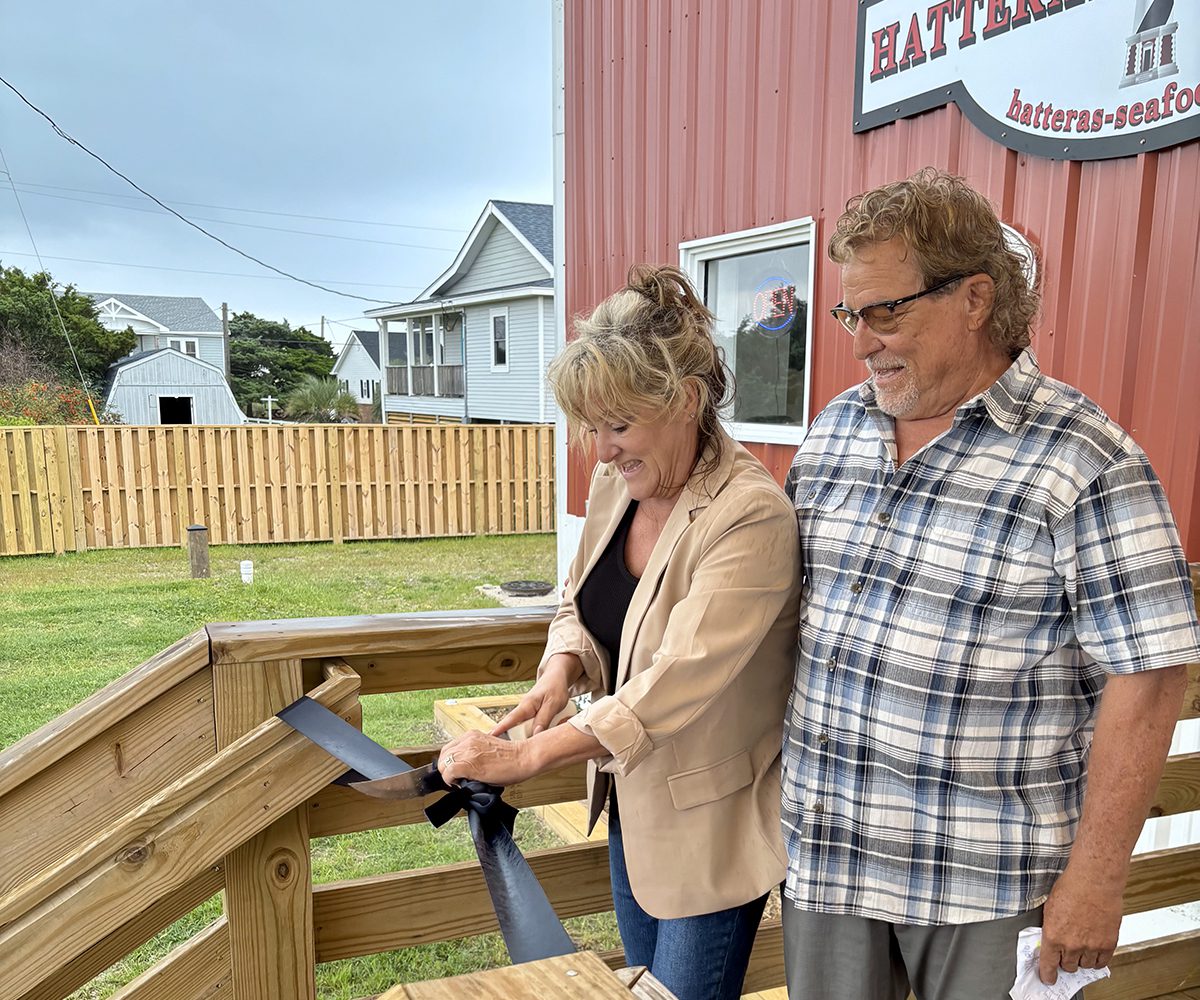
HATTERAS — Long famous for its bountiful fishing, Hatteras Island now has a new state-of-the-art processing and packing facility that keeps Outer Banks fish local from sea to plate, while also enabling local fresh catch to be shipped directly to customers.
And it’s owned by a local fishing family, to boot.
Supporter Spotlight
“The thing was, all this fish used to go to Virginia to get processed,” owner Jeff Aiken said during a recent tour of Jeffrey’s Seafood, situated along Back Creek in Hatteras Village.
The business officially opened May 21 during a ribbon-cutting celebration.
At a time when commercial and charter fishing enterprises face multiple challenges, the new facility is especially good news, Lynne Foster wrote in a message to Coastal Review.
“Jeffrey’s brings vitality to our Working Waterfront,” said Foster who along with her husband Ernie Foster run the Hatteras-based Albatross Fleet. “It also offers hope to the fishing community as well as the island community, which include many supporting businesses that rely on a vibrant fishing fleet and the sale of their catches.”
Working nearby in the chilly, 55-degree fish-cutting room, with heavy metal music seeming to set the pace, Aiken’s son Kelsey, 35, skillfully sliced through fish, one after another, cleaning and filleting. Along with another four or so people, they work their knives swiftly on large tables from early morning hours until about noon.
Supporter Spotlight
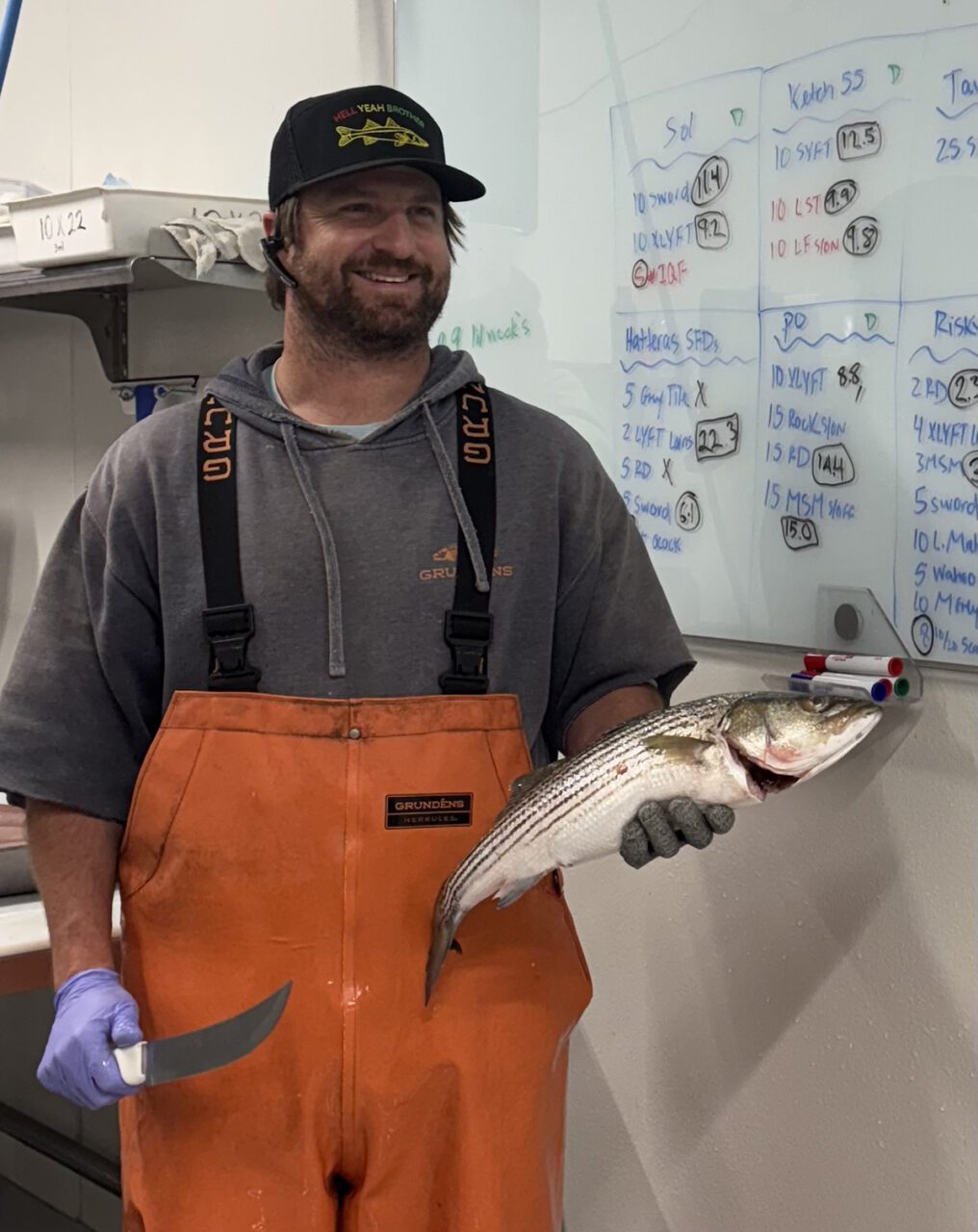
“As soon as we cut it, it gets bagged, we vacuum seal it and then it’s placed in a box to be shipped,” Kelsey Aiken said. Delivery drivers transport fish to local restaurants and markets from Hatteras to Avon, and sometimes to Rodanthe and Ocracoke. Fish awaiting processing are packed in ice, or stored in large freezers.
In addition to a temperature-controlled fish cleaning and cutting area, and rooms for packing, freezers and storage, the 11,000-square-foot facility also includes Hatteras Seafoods, the new retail market on the ground floor. Additional space remains for a small restaurant that is being planned, with the idea of serving local seafood favorites as well as beer and wine.
Proper cooling is provided by on-site freezers as large as walk-in closets, and the flash freezer — 30 degrees below zero — includes three gigantic fans to keep the air moving. There is also a chute from an ice machine on the upper floor to an “ice room” below.
“This is the brand-new vacuum sealer,” Jeff Aiken said, pointing to a long, steel machine with a pressing device on top. “That’s a $35,000 piece of equipment,” he added, as Kelsey Aiken demonstrated on a rockfish, using a 4-milliliter bag.
Nearby, there is the shrimp grader, another huge machine that not only pinches off the shrimps’ little heads, but also sorts them by four different sizes.
Jeff Aiken said that the business buys most of its shrimp from Native Seafood in Ocracoke, which has a deepwater inlet.
Although the warmer water from climate change has created boom years for shrimpers from Florida to Virginia, Jeff Aiken said, most of the local catch has to be processed in Engelhard and Swan Quarter because of depth limitations for the 60-foot shrimp trawlers. But he said that he hopes they’ll be able to get smaller shrimp boats into Hatteras for processing in the near future.
The retail store displays whole fish on ice in the glass cabinet, as well as filleted fish. A large window offers the customers in the retail store a view into the remarkably shiny and clean cutting room, showing the men, all wearing gloves and waterproof overalls, as they worked.
“I wanted them to see what’s going on,” Jeff Aiken said.
Fish scraps are returned to the water, to be happily “recycled” by other sea creatures, he added.
The facility also has an upstairs area for offices, meetings and storage, with an outside deck that boasts a wide view of the creek, the Pamlico Sound and lovely sunsets. Once the new website is up and running this winter, fresh-frozen filleted fish and shellfish will be able to be ordered online and shipped next-day air directly to consumers.
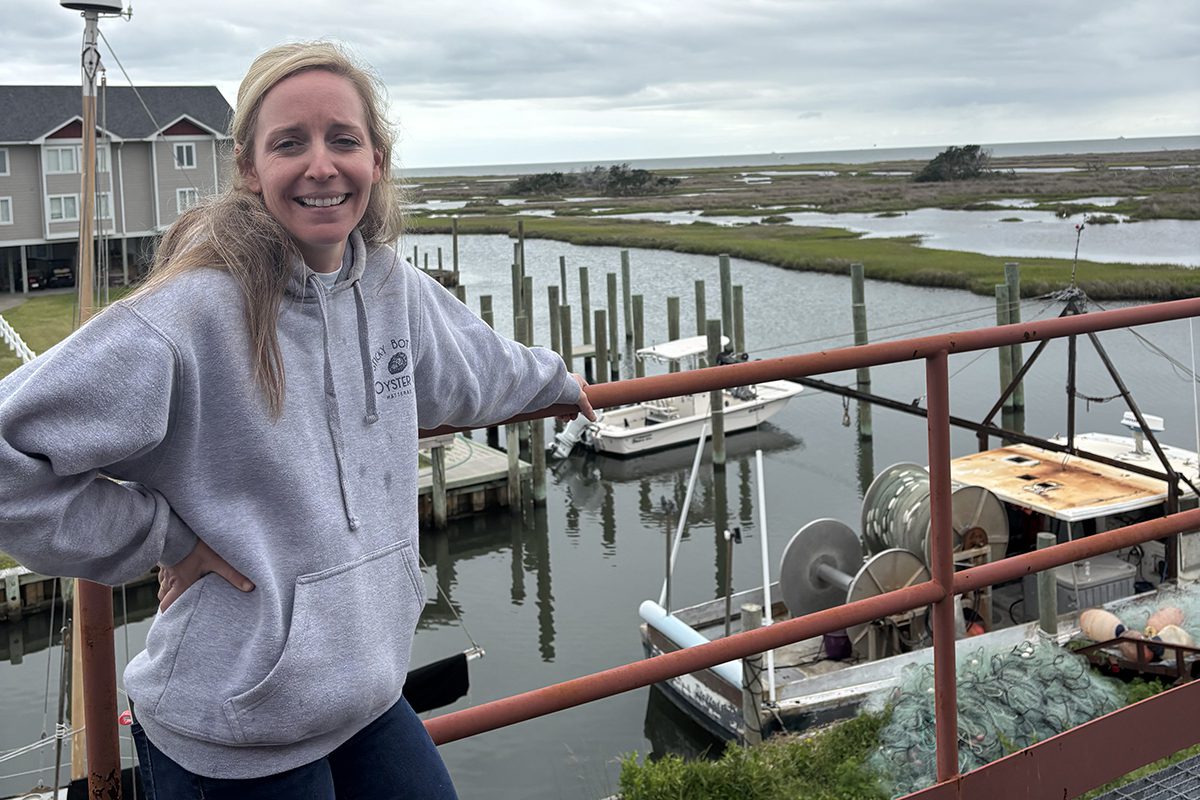
Jeff Aiken, along with his then-partners, founded the original fish house at the Hatteras docks in the 1980s, soon expanding to a wholesale business that involved driving a refrigerated truck packed with fresh Outer Banks catch to Hampton, Virginia.
Over the years, Jeff Aiken’s business adapted and evolved along with the fishing industry, as numerous local fish retailers and processors downsized or closed entirely.
But it was the COVID-19 pandemic in 2020, when supply chain disruptions left local chefs without fish to serve, that led to the dramatic expansion of Aiken’s business.
“They said, ‘Hey, you got the fish. Can you cut the fish?’” Jeff Aiken recalled. “So from that point, it spread by word of mouth and they kept coming.”
By then, Kelsey Aiken and his wife, Kelly, had joined Jeff Aiken in the business.
Jeff Aiken said he had purchased the fish house from Lee Peele, who had owned it when it was called Quality Seafood. It is also where he worked for $5 an hour when he first came to the Outer Banks in 1981.
“We were finally out of that little space out of Hatteras Harbor and we were cleaning all the fish for the charter vessels,” he recalled.
Jeff Aiken, who is from Hampton, Virginia, where he still has a home, credits his daughter-in-law Kelly, the company’s retail manager, with securing grants from the U.S. Department of Agriculture in 2021 to renovate and enlarge the facility with the goal of improving efficiency and capacity. The business had to pony up about a third of the matching funds.
“We’re in it for a million and they’re in it for two,” Jeff Aiken said. “And they got what they paid for.”
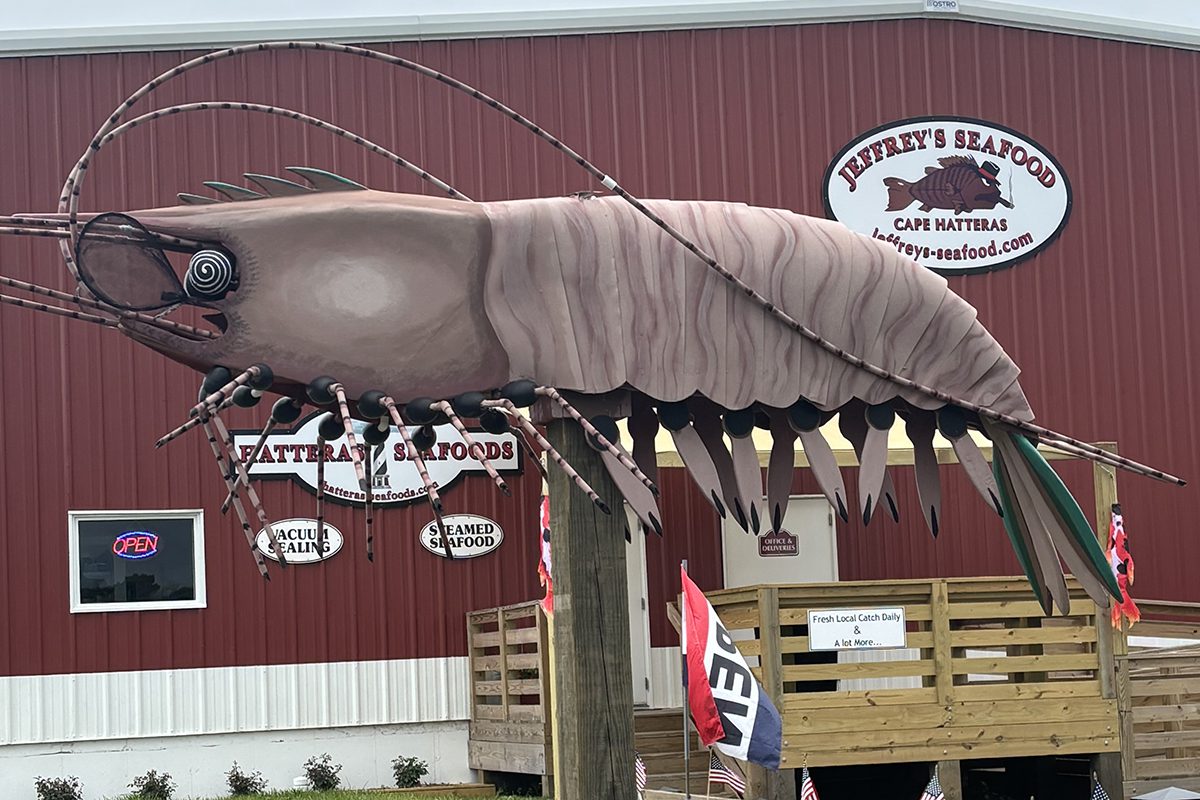
Now local chefs at local restaurants can ask for the fish they want to be filleted to order, Kelly Aiken said. Whenever possible, she said, the fin fish as well as seasonal oysters, shrimp and crab are local catch, and Jeffrey’s continues to partner with Ocracoke and Wanchese fish operations. The business also works with a distributer to bring its fresh fish — frozen and labeled — to North Carolina farmers markets to sell.
But Jeff Aiken said while their business sells almost all North Carolina product, and would never buy foreign shrimp, it’s impossible to guarantee that all their fish is strictly from the Outer Banks since fishers work within the realities of fisheries ecosystems and seasons.
“Fish have fins and tails and they swim,” he said. “They go where ever they want.”
And some fish they sell aren’t local at all, such as salmon from Norway or Scotland.
Jeff Aiken said that they buy most of their shrimp from Native Seafood in Ocracoke, which has a deepwater inlet. Although the warmer water from climate change has created boom years for shrimpers from Florida to Virginia, he continued, most of the local catch has to be processed in Engelhard and Swan Quarter because of water depth limitations for the 60-foot trawlers. But he added that he hopes they’ll be able to get smaller shrimp boats into Hatteras for processing in the near future.

Any customers looking for a brief history of Hatteras fishing can walk to the hallway behind the retail store to view a collection of historic to contemporary photographs of fishermen, including Jeff Aiken, with their boats, their family, their friends and the fish they caught.
“We call it the Hall of Fame,” he said, adding with a laugh: “Or, the Hall of Shame.”
One prominent picture is of the Ada Mae, a skipjack built in 1915 by Ralph Hodges and named after his then 13-year-old sister, who was Jeff Aiken’s grandmother.
The vessel, a former oyster dredge boat that is believed to be the last surviving skipjack in the state, has been restored. Today the boat is moored in New Bern and has participated in the reenactment of Blackbeard’s battle on Ocracoke Island, with Jeff Aiken onboard.
“All of those guys are local fishermen,” Jeff Aiken said, in between telling numerous fish tales about the various scenes lining the walls. “These pictures kind of bring the life to commercial fishing.”



